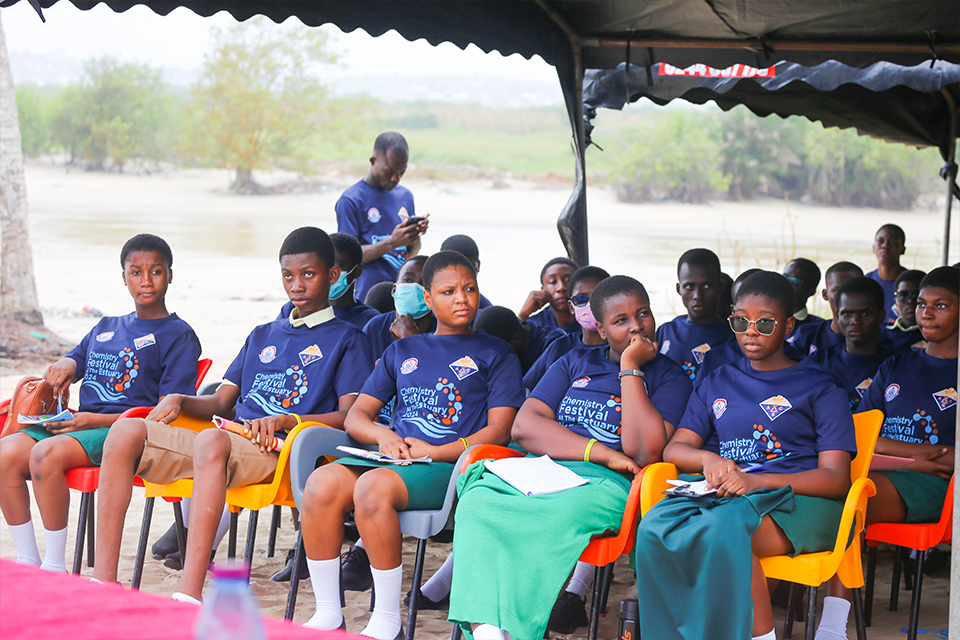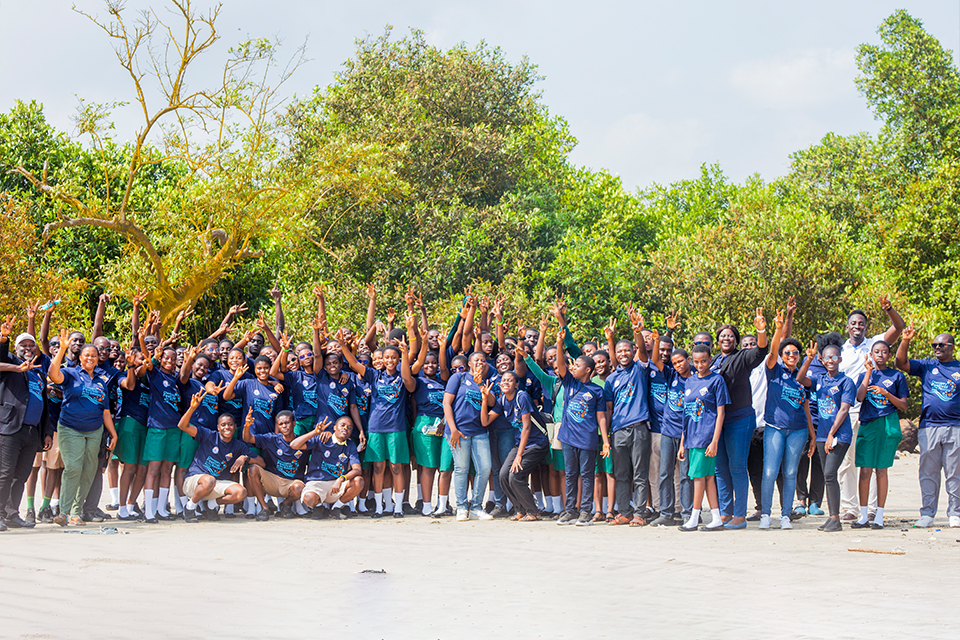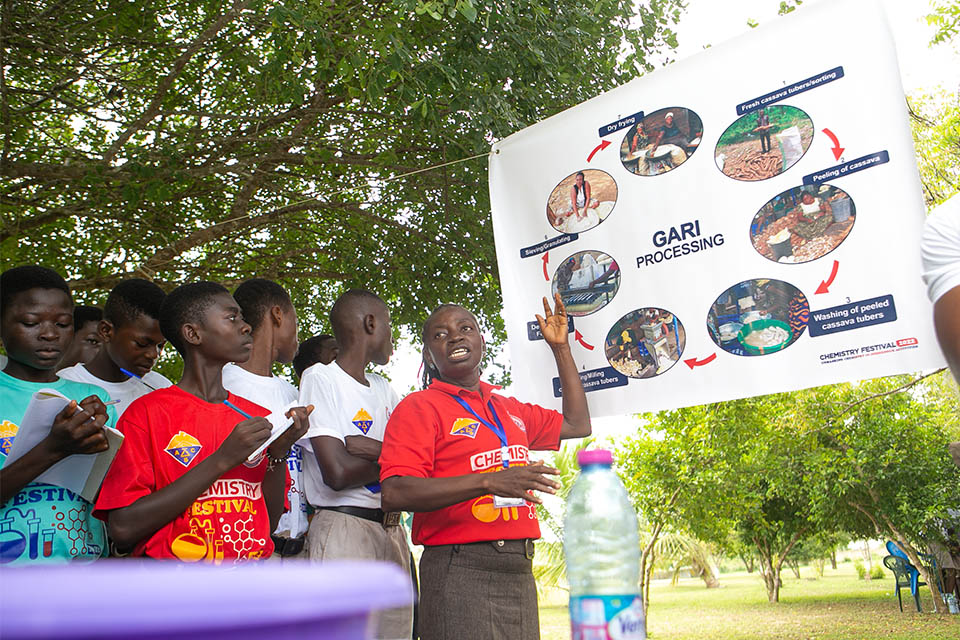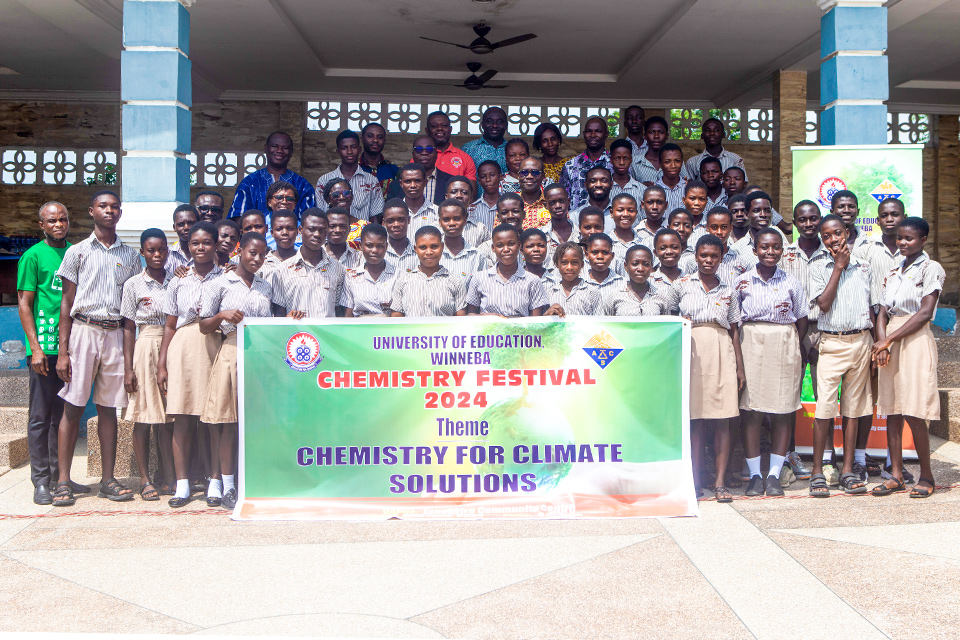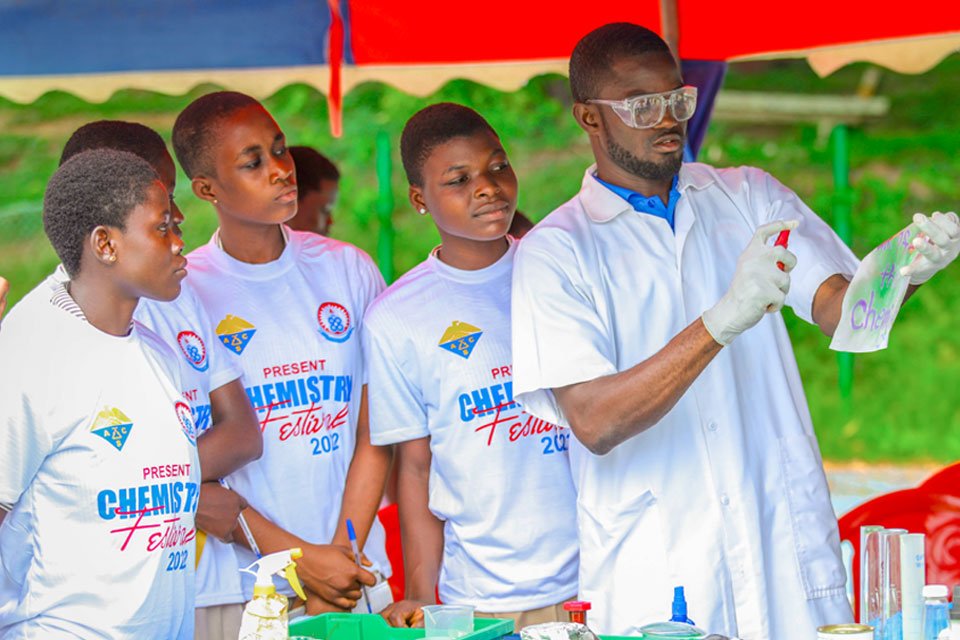DISE-UEW Explores Chemistry at the Ayensu Estuary
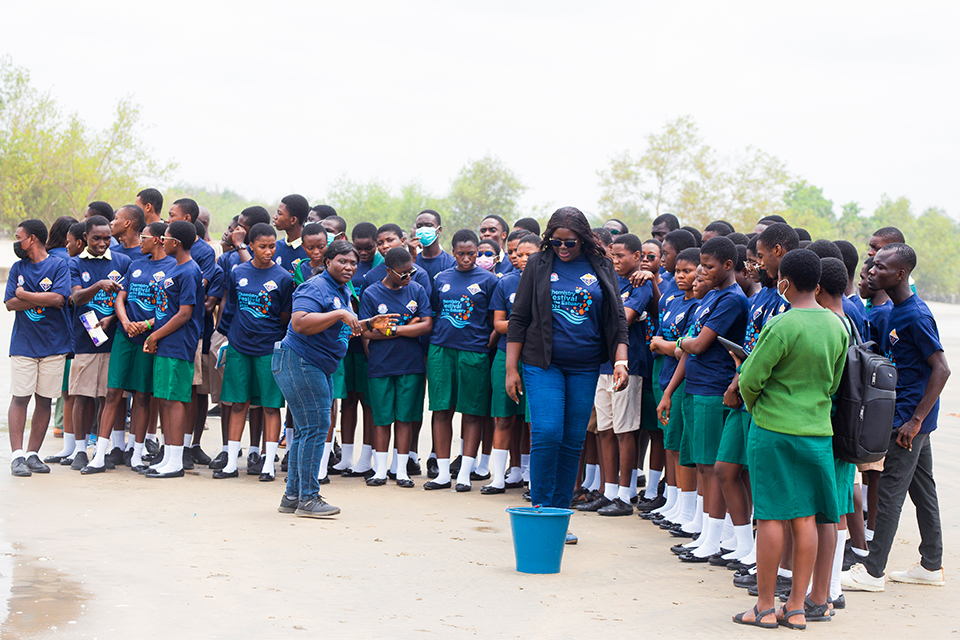
The Department of Integrated Science Education (DISE) at the University of Education, Winneba (UEW), in partnership with the American Chemical Society (ACS), recently hosted a captivating Chemistry Festival at the Ayensu River Estuary Site along the coast of Winneba.
The event, themed "Exploring Chemistry at the Estuary, a Rare Experience," provided Winneba Senior High School (SHS) science students with a hands-on opportunity to delve into the world of chemistry while fostering a deeper appreciation for environmental conservation.
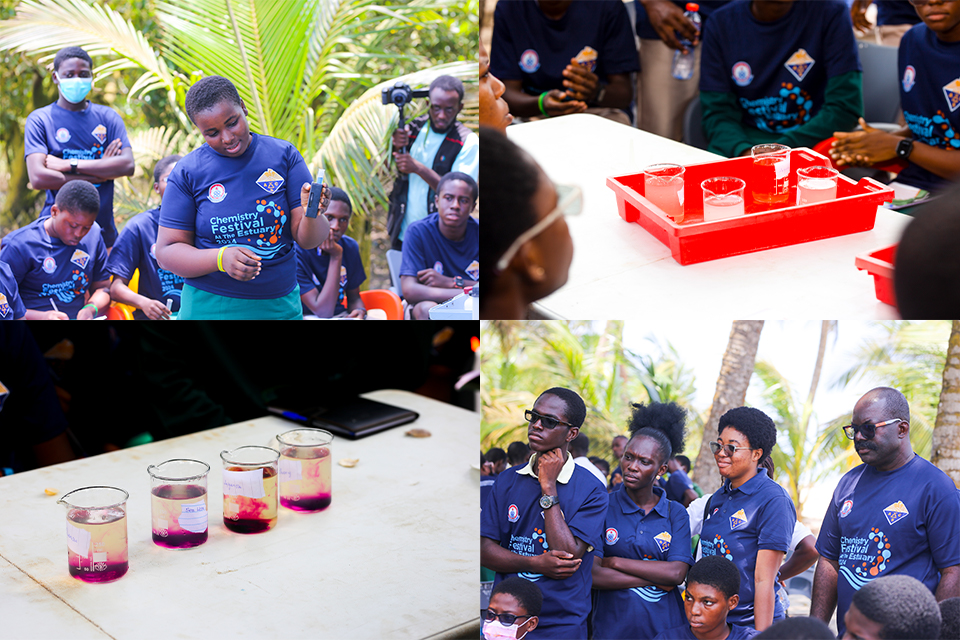
This unique festival was designed to spark interest in science, technology, engineering, and mathematics (STEM) fields, particularly chemistry, by allowing students to engage directly with the natural environment.
Participants collected water samples from the estuary, tested pH levels, observed the interplay between fresh and salt water, and explored the vital chemical processes that sustain these dynamic ecosystems. The event also facilitated discussions on practical applications such as water treatment and filtration, linking classroom concepts with real-world environmental challenges.
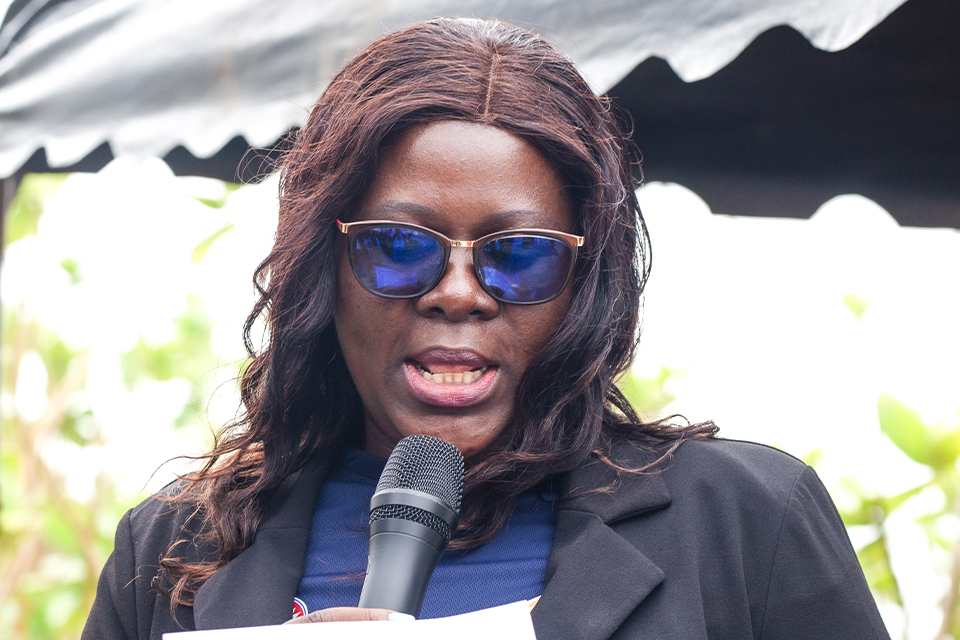
Dr. Nelly Adjoa Sakyi-Hagan, a co-grant winner and key organiser, warmly welcomed participants to the event. She highlighted the festival's role in bridging the gap between theoretical knowledge and practical application, offering students a rare chance to connect with the natural world and explore the fascinating chemistry that underpins ecological systems.
“The festival offers a multidisciplinary adventure,” Dr. Sakyi-Hagan stated, “bridging the gap between classroom learning and real-world applications. Estuaries, like the Ayensu Estuary, are rich and dynamic environments where fresh water meets salt water, creating a living laboratory for scientific discovery.”
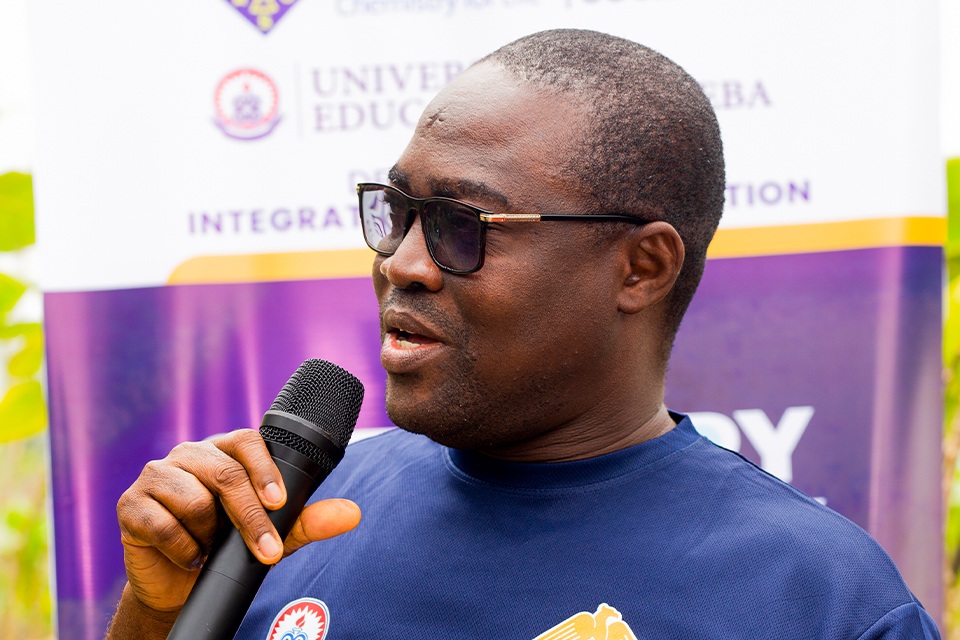
Prof. Arkoful Sam, Vice-Dean of the Faculty of Science Education at UEW, underscored the critical importance of estuaries as vital ecosystems that support a diverse range of organisms. He highlighted how the Chemistry Festival had evolved from a small initiative into a comprehensive, on-site educational activity that plays a transformative role in the learning process.
Prof. Sam stressed the need to understand the chemical processes within estuaries, which sustain life forms that can thrive only in the unique conditions where freshwater meets seawater. He also warned against human activities threatening these delicate environments, emphasising the importance of preserving estuaries for future generations.
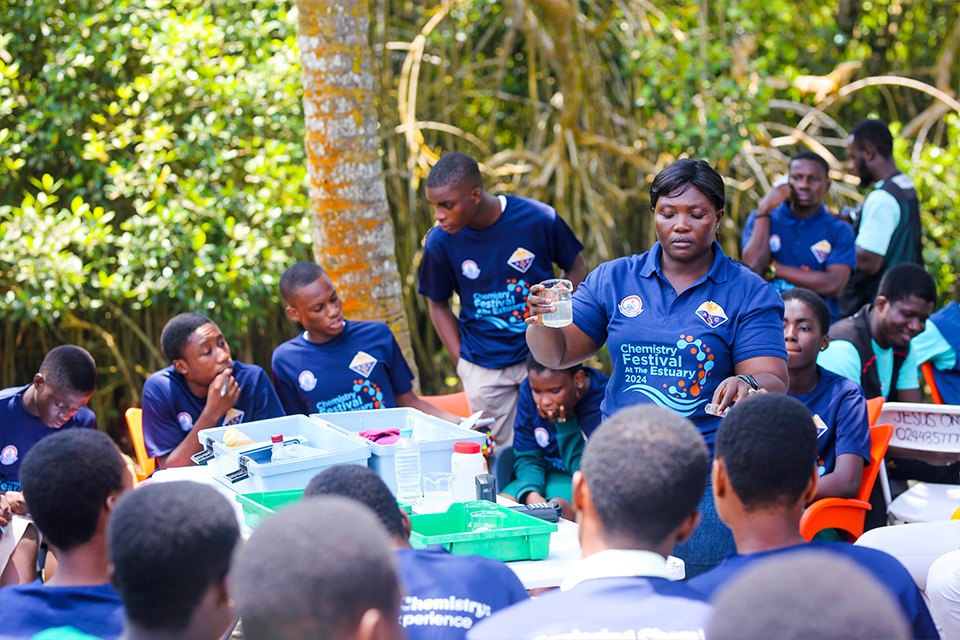
One of the festival's highlights was an engaging experiment led by Dr. Charity Esenam Anor, a co-grant winner and resource person. She guided the SHS students through an interactive demonstration of Brownian motion, a fundamental principle in physics and chemistry. By combining diffusion with Brownian motion, Dr. Anor provided students with a unique opportunity to observe the random movement of particles in different types of water.
Using potassium permanganate crystals in samples of seawater and river water, students witnessed the diffusion process firsthand, with those using microscopes gaining an up-close view of this essential phenomenon. Dr. Anor underlined the significance of Brownian motion in natural processes such as cellular respiration and nutrient distribution in water bodies.
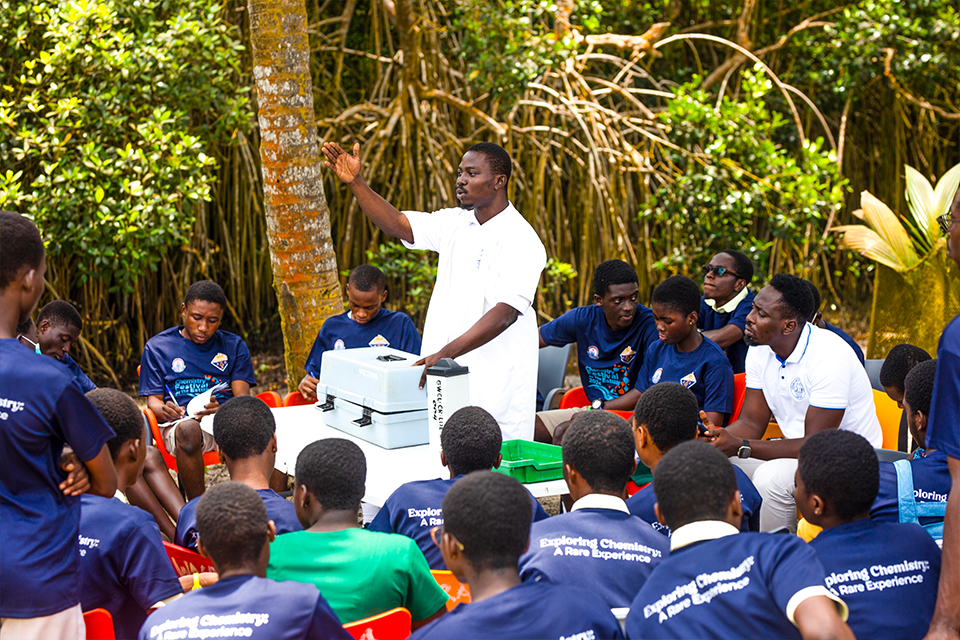
Mr. Ebenezer Osei Asante from the Winneba Branch of the Ghana Water Company Limited (GWCL), led another key session. He conducted a hands-on demonstration on water testing and analysis. This equipped the students with practical skills in assessing water quality. Mr. Asante introduced the pH testing process using the Bromo Thermo Blue indicator, discussed the relationship between pH and hydrazinium ions, and demonstrated how a colour comparator and turbidity meter help evaluate water clarity and cloudiness. His session highlighted the importance of accurate water quality assessment in ensuring safe and clean water supplies.

Dr. Charles Koomson, Head of DISE-UEW, praised the festival as a unique learning opportunity for the SHS students. He noted that the hands-on experience at the estuary would inspire the development of future scientific minds in Ghana. Dr. Koomson encouraged the students to seize this opportunity, reflecting on how such practical experiences were not available during his own secondary education. He expressed hope that the festival would leave a lasting impact on the students, igniting their passion for chemistry and environmental science.
The Chemistry Festival at the Ayensu Estuary was more than just an educational event; it was an inspiring journey that connected students with the natural world, demonstrating the power of chemistry in understanding and preserving our environment. Through activities like this, DISE-UEW continues to play a pivotal role in nurturing the next generation of scientists, equipping them with the knowledge and skills necessary to address the environmental challenges of the future.
